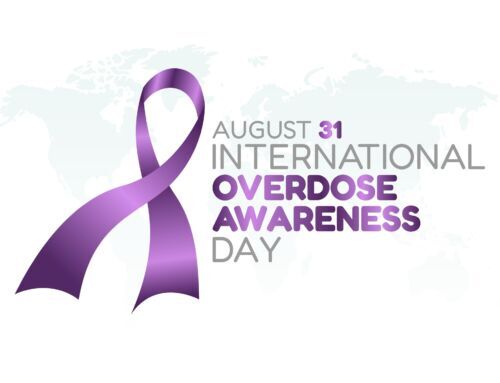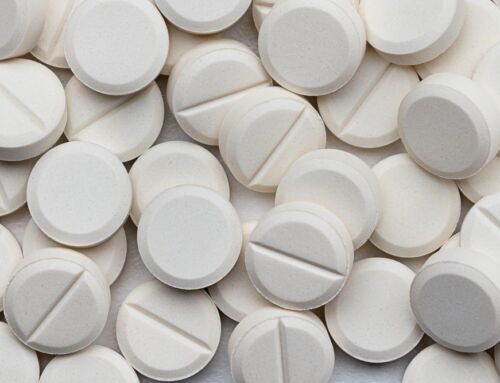For nurses struggling with substance use disorders, one of the biggest concerns is whether seeking help will jeopardize their careers. The question of whether or not you can lose your nursing license in New Jersey if you seek addiction treatment depends on several factors, including the severity of the situation, whether patient safety was compromised, and how the nurse addresses their substance use.
While the New Jersey Board of Nursing (BON) has the authority to suspend or revoke a license due to substance use, entering a treatment program voluntarily can help protect a nurse’s professional standing. Additionally, New Jersey offers the Recovery and Monitoring Program (RAMP)—a voluntary, confidential program that can help nurses avoid formal disciplinary action and regain their ability to practice.
Please note: Greenbranch Recovery provides addiction treatment services but does not offer legal advice. If you are facing potential license suspension or revocation, consult with an attorney or the New Jersey Board of Nursing for legal guidance.
Understanding the Risks: Substance Use and Nursing Licensure Loss
Nurses are held to high professional and ethical standards, as their work directly impacts patient health and safety. The New Jersey Board of Nursing may take disciplinary action against a nurse if they believe substance use compromises public safety or the nurse’s ability to provide competent care.
- A nursing license can be suspended or revoked if the BON determines that substance use has affected job performance or led to unprofessional conduct.
- Nurses can face disciplinary action even if substance use occurs outside of work. If a nurse is arrested for driving under the influence (DUI) or drug possession, for example, it could impact their license.
- Some common situations that may lead to BON action include:
- Being impaired on the job due to alcohol or drug use.
- Diverting medication for personal use.
- Failing a drug test required for employment.
- Being convicted of a substance-related criminal offense.
- Being caught in a lie or making a mistake and attempting to hide it. Honesty is crucial; for instance, a nurse who openly communicates about a potential medication mistake may receive a supportive response from their supervisor, whereas being caught in a lie can lead to significant consequences.

How Treatment Can Help Protect Your Nursing License
Seeking professional addiction treatment is one of the best steps a nurse can take to protect their career. The Board of Nursing often considers rehabilitation efforts when determining whether to suspend, revoke, or reinstate a license.
- Voluntarily entering a rehab program shows a commitment to recovery and professional responsibility.
- Some employers may allow a nurse to take a leave of absence to complete treatment instead of facing immediate termination.
- The Board of Nursing is more likely to be lenient when a nurse actively seeks help rather than waiting until an incident forces disciplinary action.
Nurses need to seek treatment to maintain their licenses and ensure they can continue to provide quality care.
Types of Nursing License Discipline In New Jersey
The New Jersey Board of Nursing (NJBON) is responsible for regulating the nursing profession in the state, ensuring that the best nurses uphold the highest standards of care. The NJBON may impose various types of discipline on nurses, ranging from warnings and fines to suspension and revocation of licensure. The type and severity of discipline depend on the nature and gravity of the offense. For instance, a nurse who commits a minor infraction might receive a warning, while a more serious offense, such as gross negligence or substance abuse, could lead to suspension or even revocation of licensure.
Understanding the disciplinary process and the types of discipline that can be imposed by the NJBON is essential for nurses. By being aware of these procedures, nurses can take proactive steps to avoid disciplinary action and maintain their licensure, ensuring their nursing careers remain on track.
The Role of New Jersey’s Recovery and Monitoring Program (RAMP)
New Jersey’s Recovery and Monitoring Program (RAMP) is a voluntary, confidential program designed to help nurses recover from substance use disorders while maintaining or reinstating their licenses. The program is overseen by the Institute for Nursing, in collaboration with the New Jersey Board of Nursing.
- Nurses who participate in RAMP receive structured support and monitoring to ensure they can safely return to practice.
- The program includes drug testing, case management, peer support, and treatment referrals.
- By enrolling in RAMP, nurses can often avoid formal disciplinary action from the BON.
Who Qualifies for RAMP?
To be eligible for RAMP, a nurse must:
- Have a substance use disorder or another condition that affects their ability to practice safely.
- Be willing to follow the program’s treatment and monitoring requirements.
Nurses may enter RAMP voluntarily or be referred by their employer, the Board of Nursing, or a concerned colleague. The experience of legal professionals in helping nurses navigate the RAMP program can be invaluable in ensuring a smooth and successful process.
Benefits of RAMP Participation
There are several advantages to enrolling in RAMP for nurses facing potential license suspension or revocation:
- Avoiding disciplinary action: Nurses who comply with RAMP’s requirements can often keep their licenses without formal BON discipline.
- Receiving structured recovery support: The program provides case management, drug testing, and peer support to help nurses maintain sobriety.
- Improving career prospects: Completing RAMP successfully can help nurses return to work more quickly and with a stronger foundation for long-term recovery.
- Sharing experiences with peers: Engaging with other nurses in the program allows participants to share experiences, learn from each other, and gain mutual support.
Will Going to Rehab Automatically Result in License Revocation?
Going to rehab for substance abuse or addiction does not automatically result in license revocation. However, it’s crucial for nurses to report their treatment to the New Jersey Board of Nursing (NJBON) and comply with any conditions or requirements set by the board.
The NJBON may require nurses to provide documentation of their treatment and progress, and may also mandate participation in a monitoring program. Failure to comply with these requirements can result in disciplinary action, including suspension or revocation of licensure.
Seeking help and support if struggling with substance abuse or addiction is essential for nurses. By proactively addressing these issues and adhering to NJBON guidelines, nurses can protect their licensure and their nursing careers, ensuring they continue to provide the best care for their patients.
Evidence of Rehabilitation: What the Board Considers
If a nurse’s license is under review due to substance use, the Board of Nursing will evaluate several factors before making a decision.
- Completion of a treatment program: Successfully finishing inpatient or outpatient rehab demonstrates a commitment to recovery.
- Compliance with RAMP (if applicable): Following the program’s guidelines can significantly improve a nurse’s chances of maintaining their license.
- Ongoing sobriety and stability: The BON may request drug testing results or statements from medical professionals to verify a nurse’s recovery progress.
- Positive character references: Letters from employers, supervisors, or colleagues can show that the nurse has taken steps to rebuild trust.
- Participation in aftercare programs: Continued involvement in support groups or therapy may strengthen the case for reinstatement.
- Maintaining thorough records: Accurate and detailed records are crucial for the BON’s review. Proper documentation helps safeguard against misconduct allegations and demonstrates ethical practice.
Reinstating Your New Jersey Nursing License After Rehab
To be eligible for reinstatement, nurses must meet specific requirements, including completing a rehabilitation program approved by the NJBON, providing documentation of their treatment and progress, and participating in a monitoring program.
The reinstatement process typically involves several stages:
- Application: Nurses must submit an application for reinstatement to the NJBON.
- Review: The NJBON reviews the application and supporting documentation to determine eligibility for reinstatement.
- Hearing: If deemed eligible, a hearing may be held to discuss the case.
- Decision: The NJBON makes a decision regarding reinstatement, which may include conditions or requirements.
Understanding the reinstatement process and seeking guidance from a qualified attorney or professional organization is essential. By doing so, nurses can ensure they meet the necessary requirements and successfully reinstate their nursing licenses, allowing them to continue their careers and provide quality care.
Note: The information provided is general in nature and may not apply to every situation. Nurses should consult with a qualified attorney or professional organization for specific guidance on reinstating their nursing license after rehab.
Protecting Your Nursing Career
Nurses who struggle with addiction may fear losing their careers, but help is available. Seeking treatment proactively can make a significant difference in how the New Jersey Board of Nursing handles a case. Programs like RAMP provide structured support that allows many nurses to recover while keeping their licenses intact. Understanding the impact of substance use on a nurse’s professional journey and taking the necessary steps can protect one’s nursing career.
If you or a fellow nurse is struggling with substance use, Greenbranch Recovery is here to help. Our treatment programs provide the support, tools, and resources needed for long-term recovery. Contact us online or call us today at 609-622-5101.




